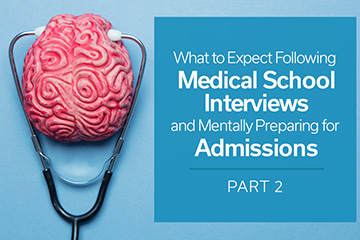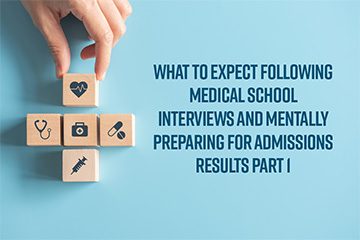
Key Pointers for Applying to CaRMS
- START EARLY
Applying to CaRMS can be a daunting process, however starting early can help you stay ahead of the curve and feel less overwhelmed. Key considerations to reflect upon include:
- How certain am I in my decision to apply to this specialty? Every specialty has its strengths and challenges, and it is crucial to take time to reflect upon whether your values and desired lifestyle fit with the specialty. Remember that the CaRMS match is a binding process, and if parallel planning with a second specialty, reflect on whether you would be happy in that specialty or would prefer to go unmatched and attempt a second time in the second iteration.
- Make an appointment with your career counsellors. Speaking with career counsellors at your school can be immensely helpful in planning out your CaRMS application, or getting answers to any questions you may have. Career counsellors usually have a lot of experience and expertise in this area and have seen numerous students and can offer you invaluable insight into preparing for the match.
- Clerkship experiences. Reflect upon your clerkship rotations, and any memorable patient experiences you might have had. What made the experiences memorable? Did they confirm my decision to pursue this specialty? Additionally, these reflections will come in handy for CaMRS interviews as you will have key anecdotes prepared for interview questions.
.
- REFERENCES
Every specialty has different requirements for reference letters, and it is important to look into the various programs to confirm what their requirements are.
- Have backup references. Inevitably, sometimes life gets in the way and preceptors who have previously agreed to write you a letter may rarely become unavailable come CaRMS season. Most programs usually require 3 reference letters for that specialty, but it may be wise to have 1-2 extra backup reference letters from preceptors.
- Try to obtain reference letters from preceptors in your specialty area. Having a preceptor in your specialty speak highly of you and your respective skills in that specialty carries great value compared to a more generic letter. However, depending on your specialty, having letters from preceptors in other specialty areas may be valuable as well, depending on what skills your preceptor may highlight in the letter.
- Are you applying to family medicine? Family medicine programs have started requesting a “Structured Reference Form”, which is different than traditional reference letters.
- Ask early and make sure to follow up! CaRMS season can become quite hectic, and it can give you peace of mind to secure reference letters starting early on in your clerkship, rather than wait until the last second. As well, it’s important to follow up with your preceptors later on in clerkship (especially if you met the preceptor early on in clerkship) to check in and confirm whether the preceptor is still willing to write you a strong reference letter.
.
- Curriculum Vitae (CV)
Many programs usually ask for your CV, which is a highlight of your clerkship experiences, research, and extracurricular activities. Make sure to check which programs require a CV. Key tips for a stellar CV include:
- Organization. Make sure that your CV is well-organized into clear sections with appropriate subheadings, usually including education, clinical experiences, research highlights, volunteering, mentoring, leadership experiences, and/or professional development. Use your discretion in ordering the different sections or adding/removing certain sections as you see fit.
- Presentation. Double, triple, quadruple check your CV! There should be no grammatical mistakes and/or typos. Bold different sections and use appropriate size font for different sections as necessary. Making a visually appealing CV is important to make a good first impression upon reviewers.
- Keep it concise. CVs should be a highlight reel of your most impressive accomplishments to date – try to keep the length between 4 and 6 pages at most.
.
- PERSONAL LETTERS
Personal letters is where your personality and passion get to shine – make sure to start early and spend plenty of time brainstorming and reviewing your letters.
- Brainstorm. Reflect back on your clerkship experiences, and which patient experiences stood out the most to you. What values do you prioritize? What about the specialty draws you in? Make sure to bring in specific anecdotes to really help your letter stand out.
- Write, write, write. Although it can be daunting to start the writing process, it’s important to begin writing as soon as you can and start jotting your ideas down. You can always revise and rewrite multiple drafts, and each rendition will be better than the last.
- Get feedback. It is highly recommended to get a second pair of eyes to read over your personal letter; whether it be a family member, someone in medicine, a senior in your specialty of interest, make sure to get feedback from a trusted source.
.
- STAY ORGANIZED
Applying to CaRMS can quickly become overwhelming with all of the necessary requirements, deadlines, and various programs.
- Create a planner. Make sure to stay organized by creating a spreadsheet, listing all the different schools you are applying to with their respective requirements, whether it be CV, personal letters, or reference letters.
- Track your progress. Check back often to review your progress and make sure you’re on track to meet the CaRMS deadline. Make sure to check that your references have submitted their letters and follow up with them closely if otherwise. It is highly suggested to submit your CaRMS application a day or two early, as last-minute hiccups can occur (e.g., technical glitches), and for your own peace of mind!
Congrats! You are now one step closer to the finish line 😊 Make sure to give yourself credit for submitting your application, which is a huge accomplishment in and of itself. Good luck with the rest of your CaRMS journey!






